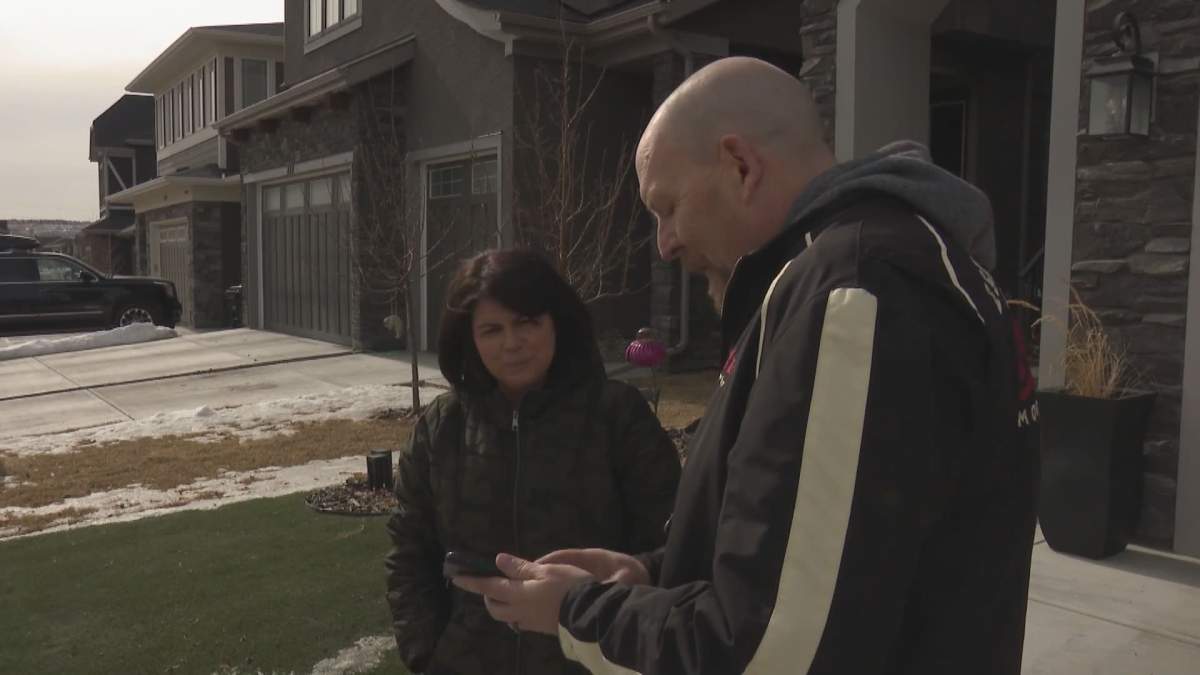A popular auto scam stateside is targeting car sellers in Alberta.

Global News has received several complaints from sellers about someone contacting them, pretending to be interested in buying the vehicle, but asking for a vehicle report first.
Calgarian Wayne Rambow recently put his vehicle up for sale and said he was bombarded with requests to buy it, including from one very persistent person who wanted to come see it right away.
“He responded, ‘Do you have a current vehicle report for it?'” Rambow said. “And I said I had one from a year ago and he said, ‘No, I want a specific vehicle report.'”
Rambow said the texts got increasingly pushy — directing him to a link the potential buyer provided.
“I went to the site that I thought I read on the text and I pulled off a current vehicle report. Then I sent them the link and they said, ‘That’s from a scam site, that’s not the report I’ll accept’.

Get daily National news
“‘I’m not doing business unless you get it from the exact link I shared with you,'” Rambow said the person texted him. “That’s when I got really suspicious.”
Rambow called the “buyer” out and pulled out of the deal.
The Canadian Internet Registration Authority (CIRA) told Global News that is always a smart move. The member-based not-for-profit organization works to secure online activity for all Canadians and make them aware of these types of scams.
Jon Ferguson, CIRA’s new General Manager of Cyber & DNS, said these types of phishing scams are becoming increasingly common and it’s important not to click on just any link.
“When your Spidey sense tingles a little bit, it’s usually a good indication to think twice,” said Ferguson. “Maybe look at the online tools to check the link, check up on the organization before you click on that information.”
Ferguson added another red flag is the urgency in which the consumer is asked to respond.
“One of the key things that you often see in these types of scams is trying to create a sense of urgency. Getting someone to act right now, you have to act now or you’re going to miss an opportunity.”
He added what the potential scammer is often after is your information.
“Personal information, access to accounts, email addresses, that type of information that lets them get a better profile on the person,” he said.
The CIRA offers a free cybersecurity service called Canadian Shield to improve privacy and block malware, including scam websites. It also suggests Canadians report any scam to their local law enforcement and the Canadian Anti-Fraud Centre (CAFC).
The CAFC has received a lot of phishing scams over the years and this year is no different. Overall, it has received more than 12,000 fraud reports from Canadians up to February 28. Almost 8,000 people have been victims of fraud, and a whopping $75.5M has been lost.
Rambow said he’s just glad he’s not one of those numbers, adding he was one of the lucky ones who could just tell the “buyer” to get lost.
“I sold it no problem! I could have sold six of those cars.”
Global News reached out to the website Rambow said he was told to click on. All of our emails to the site bounced back.




Comments
Want to discuss? Please read our Commenting Policy first.